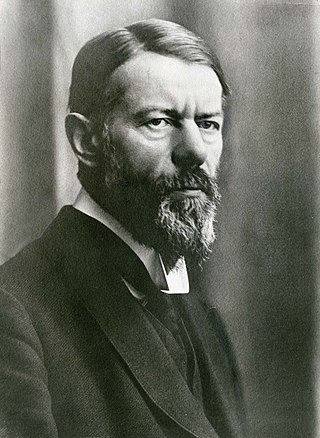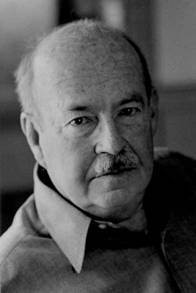Related Research Articles

Maximilian Karl Emil Weber was a German sociologist, historian, jurist, and political economist who was one of the central figures in the development of sociology and the social sciences more generally. His ideas continue to influence social theory and research.

David Émile Durkheim, professionally known simply as Émile Durkheim, was a French sociologist. Durkheim formally established the academic discipline of sociology and is commonly cited as one of the principal architects of modern social science, along with both Karl Marx and Max Weber.

Talcott Parsons was an American sociologist of the classical tradition, best known for his social action theory and structural functionalism. Parsons is considered one of the most influential figures in sociology in the 20th century. After earning a PhD in economics, he served on the faculty at Harvard University from 1927 to 1973. In 1930, he was among the first professors in its new sociology department. Later, he was instrumental in the establishment of the Department of Social Relations at Harvard.

Political sociology is an interdisciplinary field of study concerned with exploring how governance and society interact and influence one another at the micro to macro levels of analysis. Interested in the social causes and consequences of how power is distributed and changes throughout and amongst societies, political sociology's focus ranges across individual families to the state as sites of social and political conflict and power contestation.

The Protestant Ethic and the Spirit of Capitalism is a book written by Max Weber, a German sociologist, economist, and politician. It began as a series of essays, the original German text was composed in 1904 and '05, and was translated into English for the first time by American sociologist Talcott Parsons in 1930. It is considered a founding text in economic sociology and a milestone contribution to sociological thought in general.
The Religion of China: Confucianism and Taoism is a book written by Max Weber, a German economist and sociologist. It was first published in German under the title Konfuzianismus und Taoismus in 1915 and an adapted version appeared in 1920. An English translation was published in 1951 and several editions have been released since.
The Protestant work ethic, also known as the Calvinist work ethic or the Puritan work ethic, is a work ethic concept in sociology, economics, and history. It emphasizes that a person's subscription to the values espoused by the Protestant faith, particularly Calvinism, result in diligence, discipline, and frugality.

Economic sociology is the study of the social cause and effect of various economic phenomena. The field can be broadly divided into a classical period and a contemporary one, known as "new economic sociology".
Axial Age is a term coined by the German philosopher Karl Jaspers. It refers to broad changes in religious and philosophical thought that occurred in a variety of locations from about the 8th to the 3rd century BCE.

This is a chronological list of works by Max Weber. Original titles with dates of publication and translated titles are given when possible, then a list of works translated into English, with earliest-found date of translation. The list of translations is most likely incomplete.

Ancient Judaism is an essay written by the German economist and sociologist Max Weber in the early 20th century. The original edition appeared in the 1917–1919 issues of the Archiv für Sozialwissenschaft und Sozialpolitik. Marianne Weber, his wife, published the essays as Part Three of his Gesammelte Aufsatze zur Religionssoziologie in 1920–1921. An English translation was made in 1952 and several editions were released since then.

Robert Neelly Bellah was an American sociologist and the Elliott Professor of Sociology at the University of California, Berkeley. He was internationally known for his work related to the sociology of religion.
General Economic History is a book of economic theory which was composed by Max Weber's students based on notes from his lectures. It is notable for reconstructing and filling the gaps in Weber's theories with the help of his published and unpublished works. It was released three years after his death in 1920 and was translated into English by Frank Knight.

Various sociological classifications of religious movements have been proposed by scholars. In the sociology of religion, the most widely used classification is the church-sect typology. The typology is differently construed by different sociologists, and various distinctive features have been proposed to characterise churches and sects. On most accounts, the following features are deemed relevant:
The Religion of India: The Sociology of Hinduism and Buddhism is a book on the sociology of religion written by Max Weber, a German economist and sociologist of the early twentieth century. The original edition was in German under the title Hinduismus und Buddhismus and published in 1916. An English translation was made in 1958 and several editions have been released since then.
Toby E. Huff is an American academic and emeritus professor at the University of Massachusetts Dartmouth. He was born in Portland, Maine. He was trained as a sociologist but has research interests in the history, philosophy and sociology of science. He has published Weber-inspired studies of the Arab and Muslim world, as well as China, including field work in Malaysia. He is best known for his book The Rise of Early Modern Science: Islam, China and the West. Now in a third edition, it has been translated into Arabic (twice), Chinese, Korean, and Turkish. His explanation of the cultural and scientific divergence between Arabic/Islamic and European science in the medieval period has been widely influential, especially among economic historians such as Richard Lipsey, Jan Luiten van Zanden, Peer Vries, among others.

Max Weber[a] was a German lawyer, municipal official and National Liberal politician. He was the father of the social scientists Max and Alfred Weber.

This bibliography of sociology is a list of works, organized by subdiscipline, on the subject of sociology. Some of the works are selected from general anthologies of sociology, while other works are selected because they are notable enough to be mentioned in a general history of sociology or one of its subdisciplines.
Guenther Roth was a German-American sociologist. He was recognized as the leading scholar, translator and editor of the work of Max Weber in the English-speaking world; together with Claus Wittich, he translated and edited the first complete version of Weber's classic Economy and Society in English. He was professor emeritus at Columbia University. Later, his research interest extended to the biographical aspects of the sociological classics, in particular the genealogy of Weber's family.
Wolfgang Schluchter is a German sociologist and, as of 2006, professor emeritus at Heidelberg University. Schluchter is recognized as a leading sociologist of religion and an authority on the history of sociological theory, in particular on the work of Max Weber. He was one of the editors of the Max Weber-Gesamtausgabe, alongside Wolfgang J. Mommsen and Johannes Winckelmann. Gangolf Hübinger succeeded Mommsen after he died in 2004. The project was completed in June 2020, with forty-seven volumes. Schluchter was visiting professor at several universities worldwide, including the University of Pittsburgh, The New School for Social Research, and the University of California, Berkeley.
References
- ↑ Bendix & Roth 1977, pp. 49–50; Weber 1999, p. 8; Swedberg & Agevall 2016, pp. 94–96.
- ↑ Schluchter 2018, pp. 87–89; Bellah 1999, p. 280; Swedberg & Agevall 2016, pp. 94–96.
- ↑ Bendix & Roth 1977, p. 285; Bellah 1999, p. 280; Swedberg & Agevall 2016, pp. 94–96.
- ↑ Bendix & Roth 1977, p. 285.
- ↑ Bendix & Roth 1977, p. 285; Kim 2022.
- ↑ Allan 2005, pp. 154–155.
- ↑ Allan 2005, p. 158.